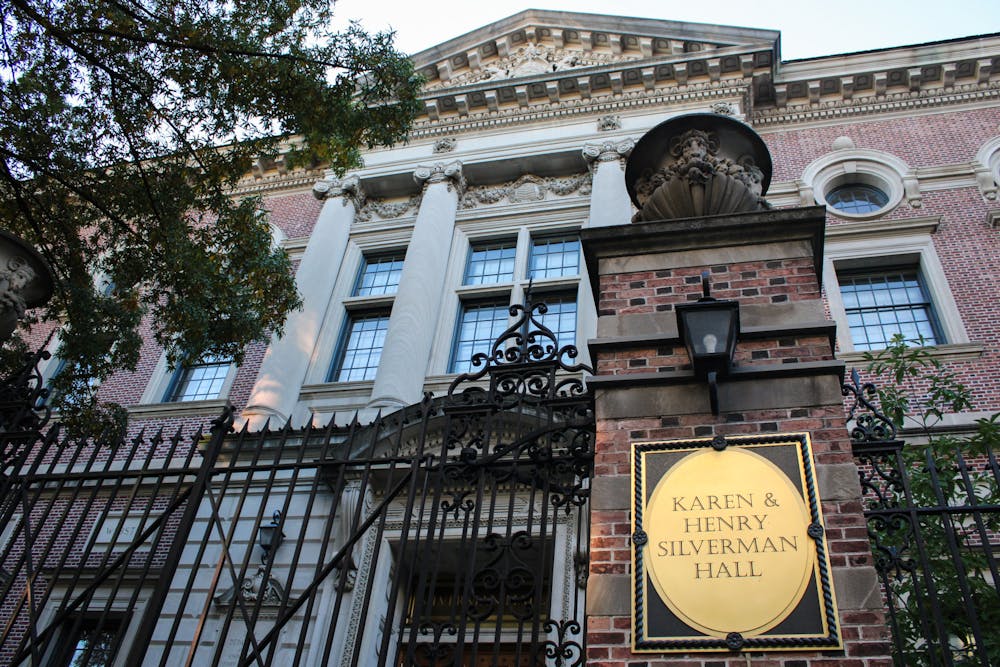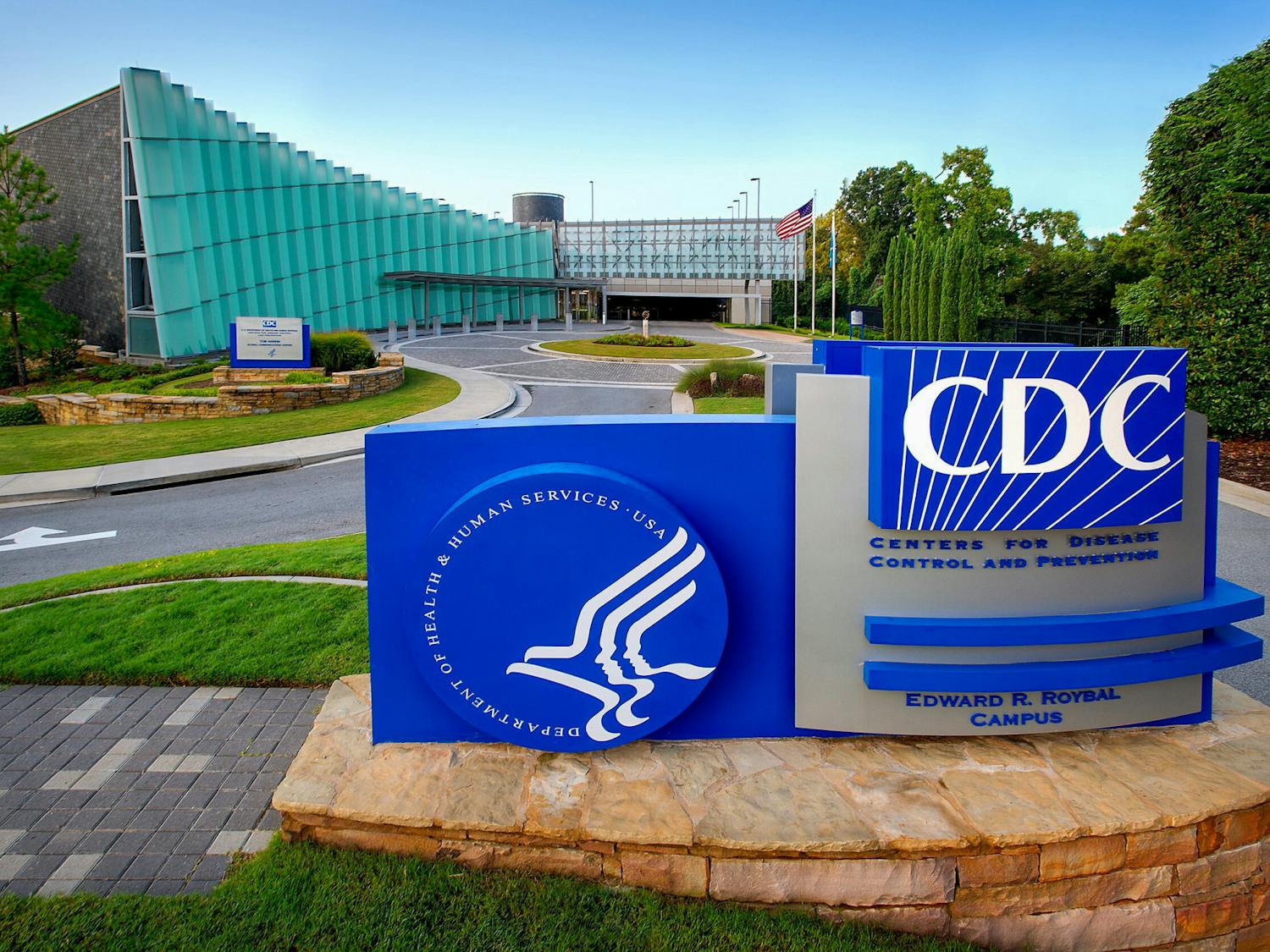Penn is continuing to lose financial support from dozens of donors — including namesakes of campus buildings and a founder of the Penn Club of New York.
The latest longtime donors joining the backlash against University leadership include 1967 College graduate Stephen Levin — the namesake of the Stephen A. Levin Building — and 1960 College and Wharton graduate Lynne Tarnopol, who co-founded the Penn Club of New York.
According to emails obtained by The Daily Pennsylvanian, 1964 University of Pennsylvania Carey Law School graduate Henry Silverman — who funded the renovations of the Penn Carey Law's original building which was subsequently named Silverman Hall — wrote to Penn President Liz Magill on Oct. 17 that he "100%" agreed with the point of view expressed by some alumni and donors, such as Wharton Board of Advisors Chair and 1984 Wharton graduate Marc Rowan.
The unusual public retaliation is centered around Penn administrators' handling of antisemitism on campus since the Palestine Writes Literature Festival and the start of the Israel-Hamas war.
Rowan, who is also a 1985 Wharton MBA graduate, spurred the retaliation with a public letter to Magill and University Board of Trustees Chair Scott Bok. Since then, dozens of alumni have announced that they will reconsider donating or stop giving to the University altogether, with some pledging to make $1.00 contributions until Magill and Bok step down.
“Enclosed please find my contribution to the Penn Fund that accompanies my prior letter to Chair Bok and President Magill — indicating my disappointment and need for change in the Penn Leadership," Tarnopol wrote to Magill on Oct. 29, attaching a $1.00 check in her name in an email obtained by the DP.
Tarnopol is the widow of 1958 Wharton graduate Michael Tarnopol, the former vice chair of the Board of Trustees and former co-chair of Wharton’s Campaign for Sustained Leadership, described as "the most successful business school campaign in history." The couple founded the Penn Club of New York in 1994.
Following a $15 million donation from Levin, the Stephen A. Levin building opened in 2016 at 425 S. University Ave. as a home for behavioral and neurological sciences at Penn. Levin is a longtime backer of Penn's School of Arts and Sciences, supporting the Stephen A. Levin Family Deanship of the College of Arts and Sciences and the Levin Family Dean’s Forum.
RELATED:
Billionaire Ronald Lauder ends donations to Penn after Palestine Writes, Israel-Hamas war response
Huntsman family, longtime Penn supporters, will halt donations to 'unrecognizable' University
In 1998, Silverman gave $15 million to Penn Carey Law — the largest donation ever made to an American law school at the time. The majority of his contribution was used to renovate Penn Carey Law’s original building, which is now renamed Silverman Hall in his honor.
Silverman also designated $5 million of his donation to start the Silverman-Rodin Scholars Program. Since 2004, five top students at Penn Carey Law have received a full tuition scholarship for their first year and half tuition scholarship for their second year through the program. Another $2 million established the Silverman professorship in support of legal scholarship and research.
Silverman is an American entrepreneur and private equity investor currently serving as the chief executive officer of 54 Madison Capital, a New York-based real estate private equity investment. He previously served as an executive at consumer services conglomerate Cendant and as chief operating officer of Apollo Global Management — a private equity firm owned by Rowan.
1984 College graduate Steve Eisman publicly announced his request that the University remove his name from a scholarship on Nov. 2.
Eisman, a senior portfolio manager at investment firm Neuberger Berman, donated at least $25,000 to Penn between July 1, 2013 and June 30, 2014, according to Penn’s annual giftbook from that time. He declined a request for comment from the DP on his decision to have his named removed .
“I do not want my family’s name associated with the University of Pennsylvania, ever,” Eisman told CNBC.
At least 17 class presidents have also sent letters to Magill that announce their halting of donations. They include Penn Fund board members, former trustees, and Penn Alumni leaders, according to emails obtained by the DP.
On Oct. 28, The Penn chapter of the American Association of University Professors said that fundamental academic functionings have been "impaired" by administrators and donors' response to the ongoing violence in Gaza and Israel and the Palestine Writes Literature Festival. The statement said that backlash from donors has had a “chilling effect” on teaching and research — challenging the core principles of academic freedom.
Other influential donors, including 1987 College graduate Jon Huntsman and 1965 Wharton graduate Ronald Lauder, spoke out in October against the University’s response to the Israel-Hamas war and the Palestine Writes festival, which took place without incident.
Lauder criticized Magill for failing to offer an apology offered to Jewish students in the aftermath of the festival and called on the University to take more action in combating antisemitism. Huntsman expressed disappointment at Magill’s initial “silence” in response to the Hamas attack on Israel. He and Rowan both halted their donations.
Magill released two statements prior to the festival, both condemning antisemitism. The second statement condemned the vandalism at Penn Hillel and a swastika discovered at Meyerson Hall, pledging additional steps to protect Jewish students.
Magill has addressed the University in three messages since the violence between Israel and Hamas began. She issued an initial statement on the war on Oct. 10 and followed up with a second statement that more explicitly condemned Hamas and emphasized Penn’s commitment to preventing antisemitism on Oct 15. As protests broke out on campus, she issued a third statement on Oct. 18 condemning hate speech.
Most recently, Magill announced a University-wide action plan to combat antisemitism following significant donor backlash and safety concerns after on-campus incidents.









